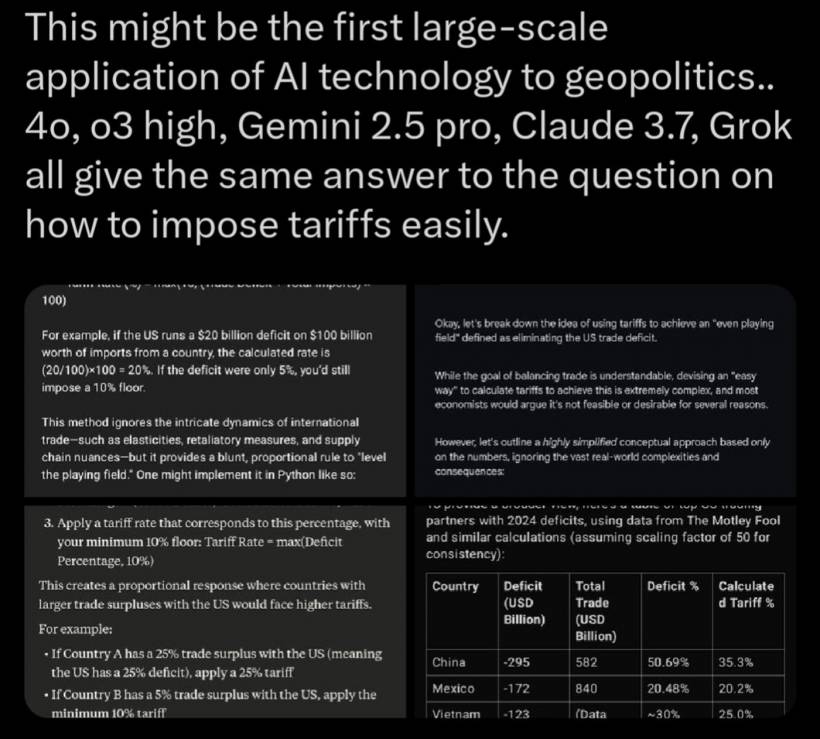Former U.S. President Donald Trump's latest tariff announcement has raised eyebrows—not just for its unusually high rates, but for the bizarre list of targeted regions, some of which don't even trade with the United States. Critics are now speculating that AI chatbots may have played a role in shaping the numbers.
Tariffs to Hit 60 Countries—And a Few Strange Additions
Set to take effect on April 9, the new tariffs will impact 60 countries, including Malaysia. Some of the proposed rates go as high as 50%, prompting widespread confusion.
What's even more baffling is that the tariffs also appear to apply to regions such as Norfolk Island—which does not export goods to the U.S.—and even parts of Antarctica inhabited only by penguins. These oddities have fueled speculation that something went wrong in how the data was gathered or interpreted.
Did AI Chatbots Influence the Numbers?
Although the U.S. Trade Representative has provided a rationale for how the tariff rates were determined, critics and social media users believe the methodology may not be as thorough as claimed.
Some users noted striking similarities between the tariff figures and outputs from AI chatbots like ChatGPT, Gemini, and Grok. In fact, several screenshots circulating online show these bots generating comparable calculations when asked about tariffs or trade policy—with some even issuing warnings about oversimplified economic reasoning.
That said, the resemblance doesn't necessarily prove AI tools were used. The similarities might be coincidental, or the chatbots may have simply followed common public data and assumptions that align with the administration's approach.
Potential Backlash for American Businesses
Trump's aim with the tariffs may have been to protect the U.S. economy from unfair trade practices, but the plan could end up backfiring on American companies. Following the announcement, Apple's stock took a hit, falling more than 6%—a sign that markets are wary of the broader consequences.
Conclusion
Whether AI chatbots actually contributed to the tariff proposal or not, the episode highlights how unconventional policymaking—especially in the era of AI—can lead to confusion, skepticism, and unintended ripple effects across industries. As policymakers continue to experiment with data-driven tools, the need for transparency and human oversight becomes increasingly crucial.






Comments